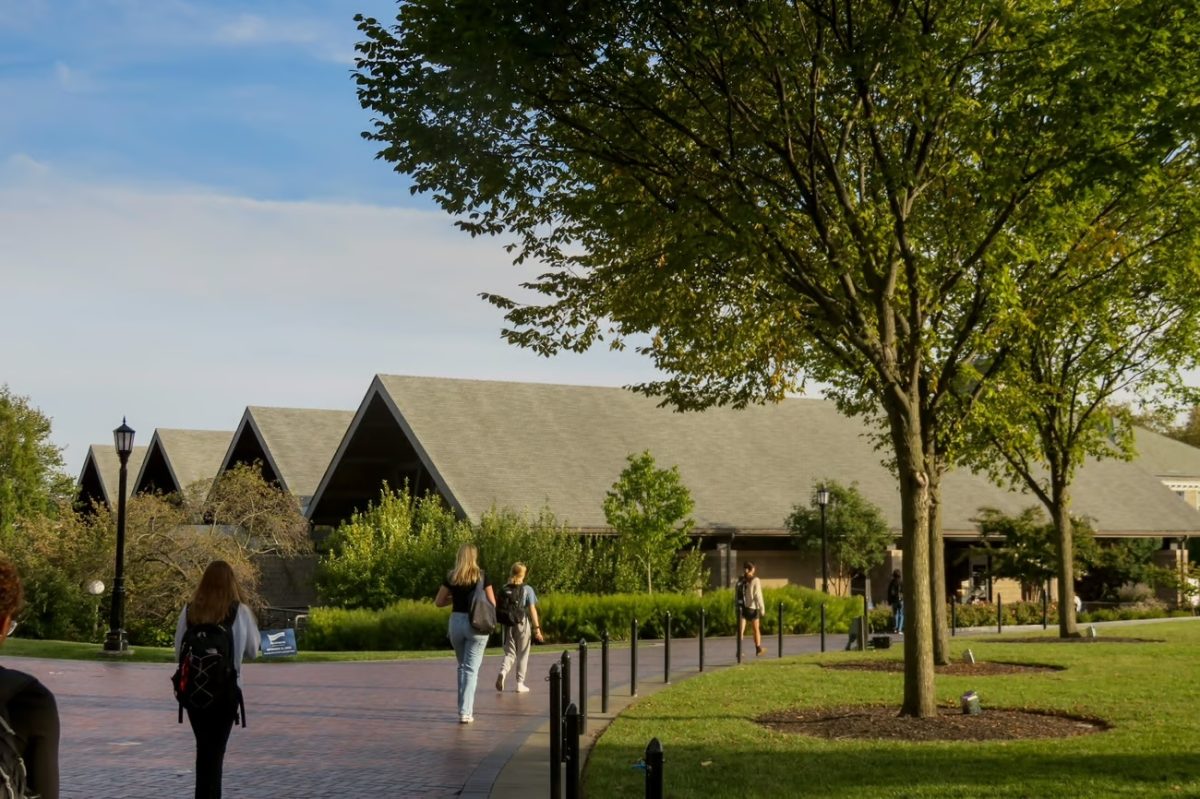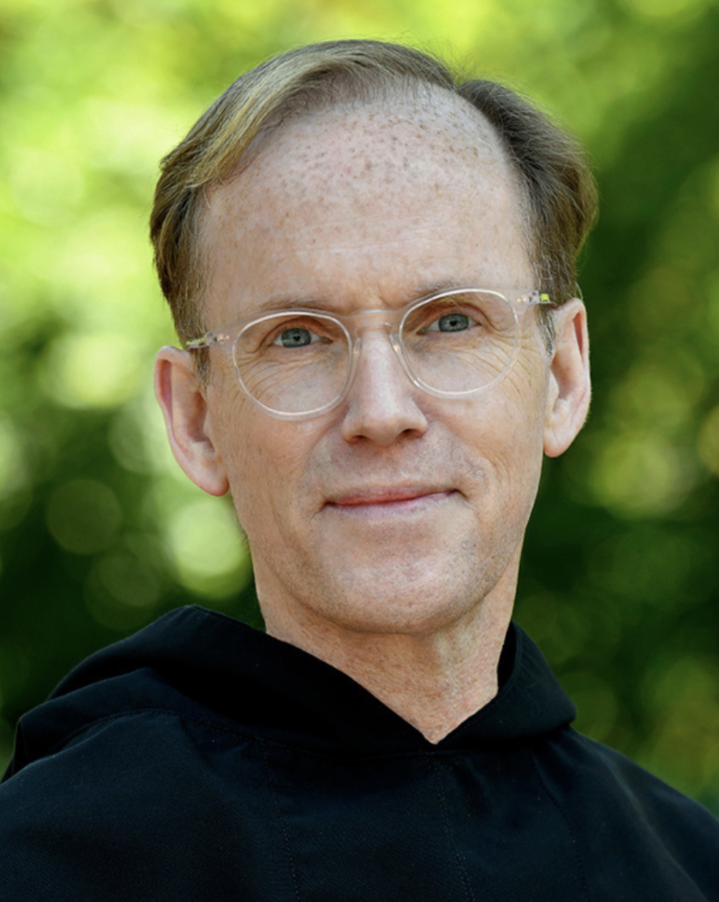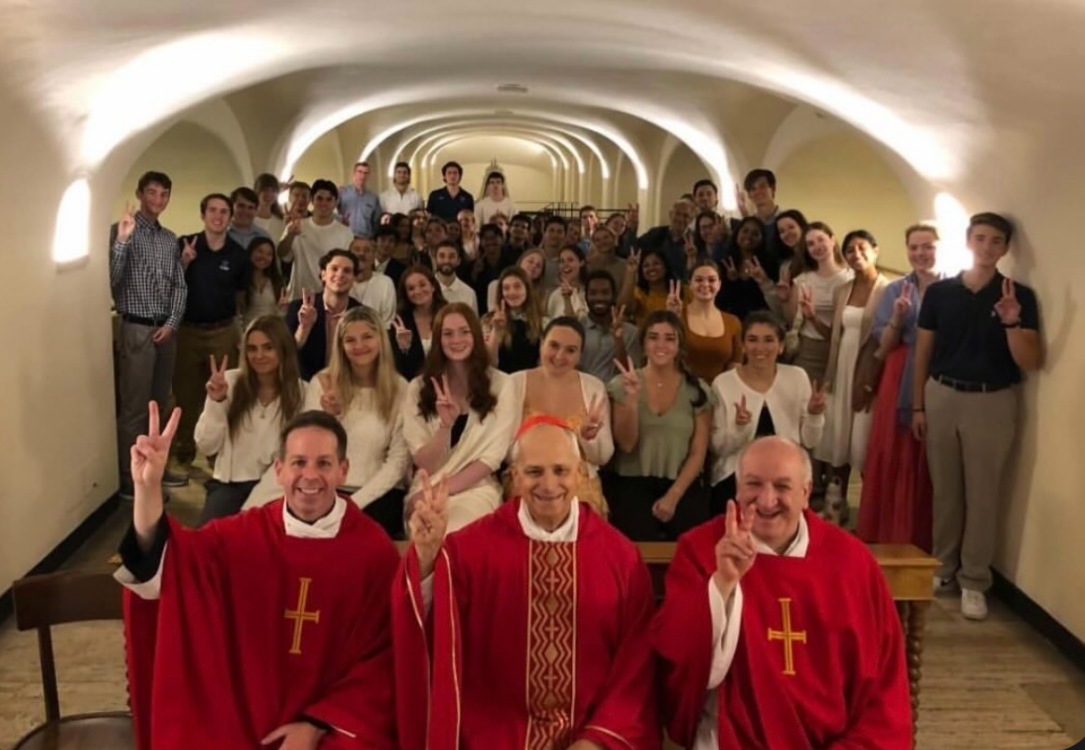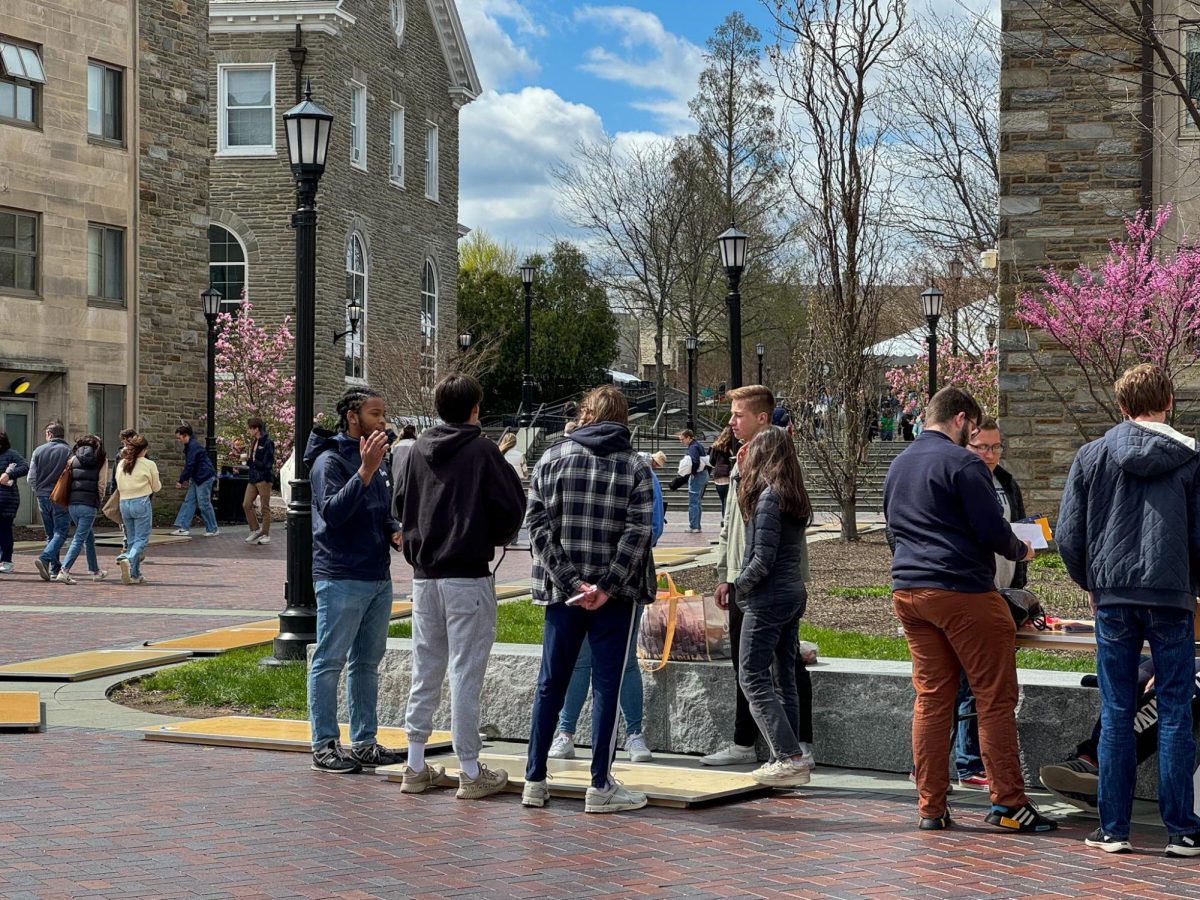On Tuesday, March 11, Dr. Paul Camacho gave the 2025 Spring Humanities Lecture titled “What’s the Point of Education? Love and the End of Learning.” This event was held in Driscoll Hall and was open to the public, bringing together Villanova students, faculty and alumni.
Dr. Jahdiel Perez, an assistant professor in the Department of Humanities, was the host of the evening. Perez first welcomed audience members, including humanities students and students from various first-year student programs.
He also spoke on future humanities opportunities.
“On April 5, we are hosting our intellectual retreat,” Perez said. “It’s titled ‘Philosophy of Friendship: Human and Divine.’ And on April 10 we are hosting a Flannery O’Connor pizza and movie night.”
Perez also handed out a sheet of the Fall of 2025 course offerings from the Department of Humanities to all interested Villanova students in attendance.
Perez then introduced Ashleigh Reen, a philosophy and humanities double major, to introduce Camacho. Reen described her experience as a student of Camacho.
“In his classroom, Dr. Camacho tries to awaken students to the wonder that is the beginning of authentic intellectual inquiry through encountering great works of philosophy, literature and art,” Reen said. “Rather than spilling out information he expects his students to recite, Dr. Camacho encourages each student to become an active participant in their own pursuit of the truth.”
Camacho began his lecture expressing thanks to all of those attending, especially his students.
“I am incredibly moved by the generosity of your presence,” Camacho said. “Tonight, and in the classroom, and in my life.”
He then moved to identifying the type of education he would be examining throughout his lecture. Instead of one focused on gaining skills or creating a “worker,” this type is “something that the ancient Greeks called paideia. Paideia means a holistic education, it means learning what it takes to live as a human being.”
Camacho then illustrated that to convey the idea that “the point of education is to fall in love,” he would use The Symposium and The Phaedrus, two books focusing primarily on love. Camacho also used the 20th century philosopher Josef Pieper to elucidate Plato’s point of “divine madness.”
Starting with The Phaedrus, Camacho described a scene between Socrates and Phaedrus. This conversation happened outside of the city walls, which represents the place of leisure, or “schole” in the Greek language. This is in contrast to the “ascholia,” or business, that takes place within the city walls. This language use, Camacho illustrated, reflects that “the priority is given, in the Greek imagination, to leisure first.”
Continuing with the conversation between Socrates and Phaedrus, he illustrated the two main points illuminated- both of the one attempting to put reason, or a contract on love, and the other describing that there is “a kind of being beyond oneself, a kind of madness, that is not irrational or sub-rational but rather suprarational…the best things we have come from madness.”
Camacho then turned to The Symposium, which he illustrated as a combination of several myths of eros, or love. Camacho described what he saw as the two most compelling myths in this book, those of Aristophanes and Socrates. For Aristophanes, “eros” is a wound, “love is an expression of a lack, or a wound in the self…a longing for wholeness.” For Socrates, eros is the “between,” not “beautiful and perfect but something that seeks for what’s beautiful and perfect.” Humans are similarly in the middle between ignorant animals and all-knowing Gods, encouraging them to ask questions, knowing how to ask questions but not knowing all of the answers.
Further describing Socrates’ speech, Camacho explained Socrates’ vision of love “the purpose of love is not to get something for ourselves but rather to give birth in the presence of beauty.”
This pregnancy does not refer to a bodily pregnancy but rather one of the mind, producing something greater than itself: “We all have something good in us that transcends ourselves. The purpose of love, life, and of education is to bring this into being”
Therefore, Camacho added, a good teacher does not give their students facts, but rather is a good “midwife,” helping students to deliver what they already have within them.
A good education is also one that trains the human desire towards something that is more fulfilling, training a human beings’ capacity for “eros.” Camacho also expressed that education is intended to encourage better habits that create greater space for contemplation within a person’s daily life.
Camacho’s lecture was followed by a question and answer session and a reception in the lobby of Driscoll Hall.







